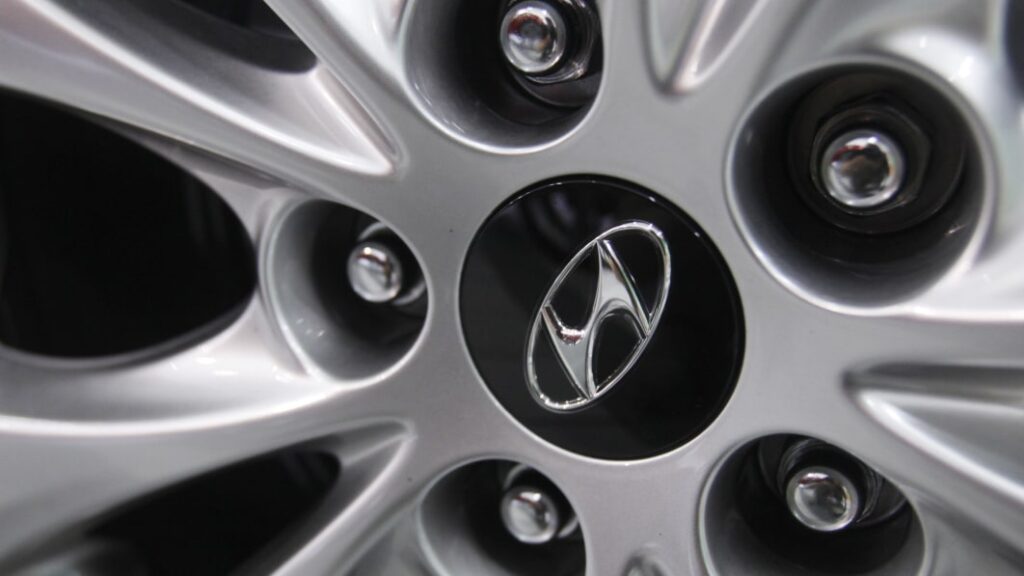Hyundai and Kia thefts keep rising despite software fix, crime data show

Nearly three months ago, Hyundai and Kia unveiled software that was designed to thwart an epidemic of thefts of their vehicles, caused by a security flaw that was exposed on TikTok and other social media sites.
So far, it hasn’t solved the problem. Across the country, thieves are still driving off with the vehicles at an alarming rate.
Data from seven U.S. cities gathered by The Associated Press shows that the number of Hyundai and Kia thefts is still growing despite the companies’ efforts to fix the glitch, which makes 8.3 million vehicles relatively easy targets for thieves.
From Minneapolis, Cleveland and St. Louis to New York, Seattle, Atlanta and Grand Rapids, Michigan, police have reported substantial year-over-year increases in Hyundai and Kia theft reports through April. An eighth city, Denver, which was hit early by the theft outbreak, reported a 23% decline from 2022 levels but still endured a high number of thefts.
So far this year, Minneapolis police have received 1,899 Kia and Hyundai theft reports, nearly 18 times the number for the same period in 2022.
“The scope of the problem is only expanding and is exponentially worse than it has been in the past,” Brian O’Hara, the police chief of Minneapolis, said in an email. “We have some weeks where nearly as many Kias and Hyundais are stolen in a week as had previously been stolen in a year.”
The most recent nationwide numbers on Hyundai and Kia thefts aren’t yet publicly available. The figures for early 2023, as calculated by the Insurance Institute for Highway Safety, will be released until later this year. (Hyundai and Kia are part of the same South Korean corporate family.)
Some U.S. cities have reported that 60% or more of their auto theft reports now involve Hyundais or Kias. Videos on TikTok and other sites that illustrate how to start and steal Kia and Hyundai models — using only a screwdriver and a USB cable — have allowed the thefts to spread across the nation since late 2021.
In New York, the Hyundai-Kia theft problem has grown so worrisome that the city held a news conference last last month to offer owners devices that can track their vehicles if they’re stolen. Police there reported 966 Hyundai and Kia thefts as of April 30 — nearly seven times the number in the same period of 2022.
The disturbing theft rate, which authorities nationally have linked to other crimes including at least 14 reported crashes and eight fatalities, has persisted despite the automakers’ unveiling of their anti-theft software campaign in mid-February.
“GLA is driving our crime,” New York Mayor Eric Adams said, using an acronym for grand larceny of autos. “Kia and Hyundai are driving the GLAs.”
Hyundai and Kia have said they’re accelerating their distribution of the software, with Hyundai saying it’s reached 6,000 installations a day. The company says it’s using direct mail, phone calls, digital advertising and social media to try to reach the affected owners.
Ira Gabriel, a spokesman for Hyundai, said the company has tried to remove from social media the instructional videos that show how to steal the cars.
“But as new ones surface,” he said, “there have been additional waves of thefts.”
Kia said in a statement that it began developing and testing the security software last year.
“The process occurred at an accelerated pace and allowed us to begin rolling out the enhanced security software earlier this year in phases,” the company said.
Safety authorities say the companies’ software rollout has been far too slow. Of the 4.5 million Kia vehicles that are eligible for the fix, the automaker says it’s installed the software on about 210,000 — nearly 5%. Kia says it has sent notifications to about 2.8 million of the affected owners and expects to have notified all of them by the end of this month.
For Hyundai, the figure is about 225,000 out of 3.8 million vehicles — roughly 6%. Hyundai said he expects to have contacted all the affected vehicle owners by May 18.
The companies’ affected cars, many of them lower-cost models from the 2011 to early 2022 model years, were not equipped with a theft immobilizer. Such a device contains a computer chip in the key that must be recognized by another chip in the steering column before the engines will start.
Though most automakers have had the chips for years, Hyundai and Kia have lagged behind the industry as a whole in installing them on many models, thereby allowing thieves to exploit the security gap. In the 2015 model year, immobilizers were standard on 96% of other manufacturers’ models but on only 26% of Hyundai and Kia models, the Insurance Institute for Highway Safety said.
The automakers’ service campaign to install the software should have been more aggressively pursued, said Michael Brooks, executive director of the nonprofit Center for Auto Safety.
Brooks suggested that if the U.S. National Highway Traffic Safety Administration had managed a recall of the affected vehicles, it would have stood a better chance of alerting owners to the danger and need to seek a repair.
“Unless people are really following the news,” he said, “they might not know about theft issues.”
Shakira Ellis, a music instructor from Long Beach, California, is among those who hadn’t heard about the thefts — until her 2019 Hyundai Tucson was stolen in front of her home around 4 a.m. on April 25. The car, which contained some of her musical instruments, hasn’t turned up.
Ellis, 26, said her Tucson lacked the immobilizer, and she hadn’t been informed of Hyundai’s campaign to distribute the software fix. If she had, Ellis said, she would have immediately taken it in to be fixed. She feels Hyundai should provide her with a new car to replace her stolen vehicle,
“I feel like I should be compensated,” she said. “It’s been ruined because it’s defective. And people know. It’s a target.”
Even with a recall, not everyone takes an affected car to a dealer to be fixed. Recall completion rates, Brooks said, average only around 60% of owners.
Some of the vehicles, about 15% in Hyundai’s case, can’t be fixed with software. But both Hyundai and Kia say they’ll pay for anti-theft devices for those owners.
In Minneapolis and other cities, police say teenagers, some of them too young to have a driver’s license, have exploited the vulnerability. Often they crash or are involved in other crimes. The Minneapolis police recorded 209 cases of Hyundais or Kias being involved in hit-and-run injury crashes, and they’re investigating 169 reports that Kias or Hyundais were used in other crimes.
Multiple cities, including St. Louis, Cleveland, Milwaukee and Seattle, have sued the automakers, accusing them of failing to install industry-standard anti-theft devices and placing an undue burden on city services.
“Kia and Hyundai prioritized profit over people by not installing engine immobilizers in these vehicles,” Cleveland Mayor Justin Bibb said in announcing his city’s lawsuit.
O’Hara, the Minneapolis police chief, said the thefts are a “public safety crisis” that is overwhelming communities.
“Juveniles are joyriding in these stolen models, and when they are caught by police, he said, they’re rarely held accountable for their behavior” by the courts and youth corrections systems.
That can lead to more serious crimes, he said, “until they get very seriously injured or killed themselves.”
____
Associated Press news researcher Rhonda Shafner contributed to this report from New York.




